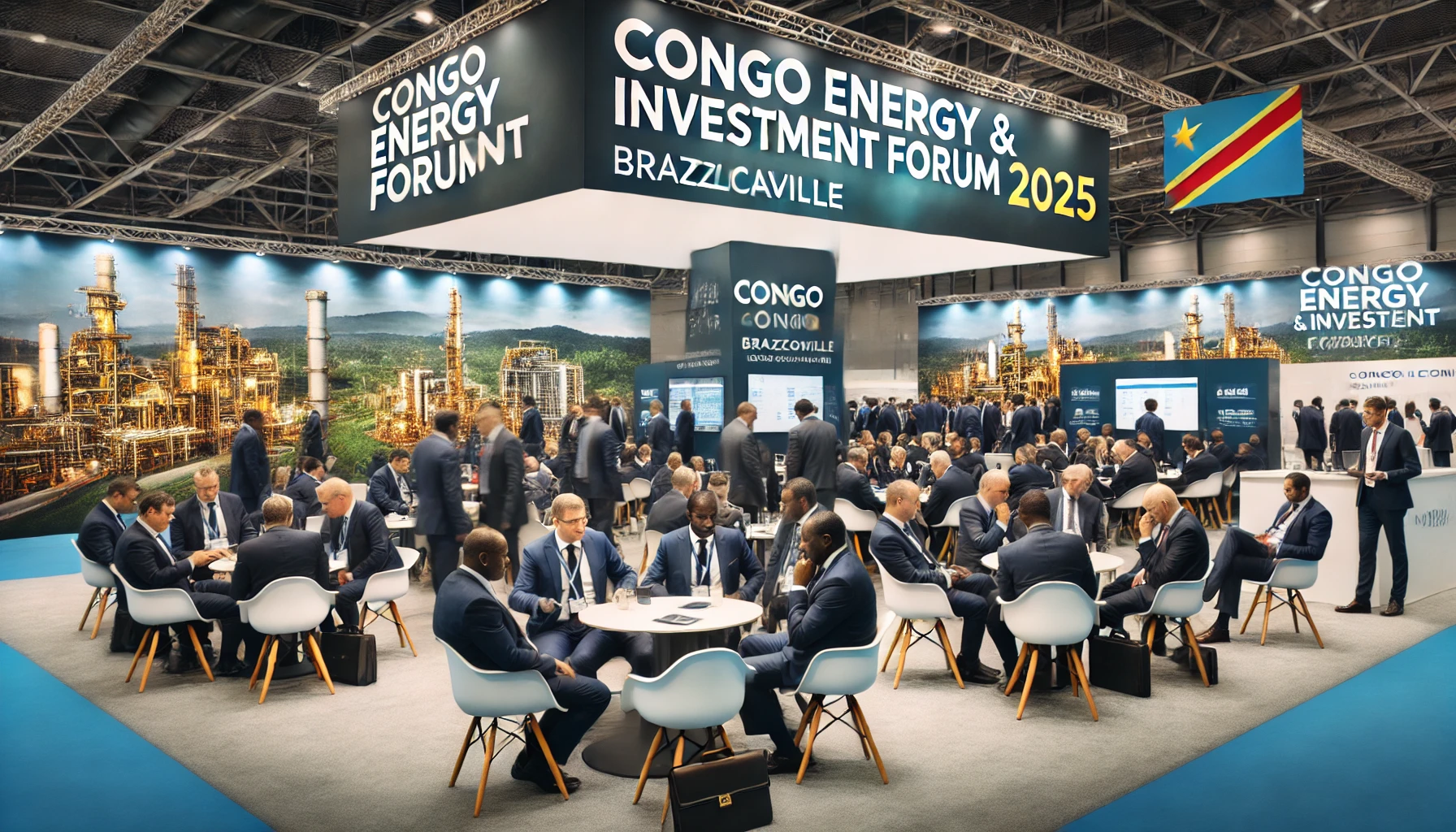CLG Congo at Forefront of Regulatory Reforms Ahead of Congo Energy & Investment Forum 2025
CLG Congo is a premier provider of legal, tax, and commercial advisory services, working closely with oil and gas companies to navigate the complex regulatory environment.

- Country:
- Congo
The upcoming Congo Energy & Investment Forum (CEIF), scheduled from March 24-26, 2025, in Brazzaville, is set to be a pivotal event for the country’s energy sector. One of the key topics will be the much-anticipated Gas Code, a regulatory milestone designed to provide a clear and structured framework for gas exploration, production, and commercialization. This initiative aims to boost investor confidence and unlock the full potential of the Republic of Congo’s vast natural gas reserves.
CLG Congo, a leading legal and commercial advisory firm specializing in the energy sector, will play an instrumental role in these discussions. In a recent interview with Energy Capital & Power (ECP), Yves Ollivier, Managing Director, and Daoudou Mohammad, Director of Tax & Legal at CLG, provided insights into the country’s regulatory landscape, the upcoming Gas Code, and emerging investment opportunities.
CLG Congo’s Current Activities in the Energy Sector
CLG Congo is a premier provider of legal, tax, and commercial advisory services, working closely with oil and gas companies to navigate the complex regulatory environment. In 2024, CLG played a significant role in Trident Energy’s acquisition of Chevron and TotalEnergies' interests in key oil fields:
- Lianzi Field: Trident now holds 15.75%.
- Nkosa and Nsoko 2 Fields: Trident holds 85%.
- Moho Bilondo Field: Trident holds 21.5%.
To expand its client base, CLG actively participates in major energy events, such as African Energy Week in Cape Town, and serves as legal counsel for CEIF 2025 in partnership with Energy Capital & Power.
Impact of the Republic of Congo’s Legislative Framework on Foreign Investment
Historically, approximately 80% of direct investments in the Republic of Congo are driven by the oil and gas sector, underscoring the economy’s reliance on hydrocarbons. To enhance investment conditions, the government has established several investment promotion structures, including:
- Public-Private Partnership (PPP) Agency
- Ministry for International Cooperation and Public-Private Partnerships
The 2016 Hydrocarbons Code introduced competitive bidding for exploration rights, promoting transparency and increasing investor confidence. However, the absence of a Gas Code has been a notable gap. The current draft, developed with support from international institutions, aims to attract foreign capital and streamline regulations for a more competitive gas industry.
Fiscal Incentives for Energy Investments in Congo
The government offers various fiscal incentives to attract energy investments, including:
- Corporate tax exemptions and progressive tax reductions for oil and gas projects, negotiated within Production Sharing Contracts (PSCs).
- Customs incentives, such as the IM5 temporary import regime, allowing for tax-free equipment imports provided they are re-exported.
These measures significantly reduce entry costs for investors and enhance project profitability.
Key Expectations from the Upcoming Gas Code
The Gas Code, expected to be enacted in 2025, will establish a clear legislative framework for gas monetization, fiscal terms, and resource management. The draft was presented to gas companies in late 2023, with final approval anticipated after necessary modifications.
Additionally, the Gas Master Plan, developed by SNPC in collaboration with McKinsey, aims to:
- Boost investment in the gas sector
- Expand gas utilization across the Republic of Congo
Another critical issue is the VAT decree (2023-1337), which extends VAT to previously exempt oil and gas operations. Ongoing discussions between the government and industry stakeholders seek to find a balanced solution that benefits all parties involved.
Regulatory Framework and Local Content Development
Despite the enactment of local content decrees in 2019, enforcement remains a challenge. The law mandates that 70% of management roles in the oil and gas sector be held by Congolese nationals, but the lack of clear compliance mechanisms hampers consistent implementation.
While companies strive to adhere to these guidelines, effective monitoring and verification processes are essential for sustainable workforce development in the sector.
Key Expectations for the Congo Energy & Investment Forum 2025
CLG Congo views the CEIF 2025 as an invaluable platform to engage with foreign investors and showcase Congo’s gas potential, which includes proven reserves of 284 billion cubic meters. Significant ongoing projects include:
- Eni’s Tango FLNG Project
- Wing Wah’s Banga Kayo Gas Project
The forum will facilitate direct dialogue with policymakers, allowing stakeholders to propose solutions for pressing industry challenges, such as the finalization of the Gas Code and fiscal reforms. Key discussion topics will include:
- Regulatory reforms and updates to the Hydrocarbons Code
- The impact of the VAT decree
- Strategies to foster a competitive and attractive investment environment
Through these discussions, CLG aims to highlight investment opportunities and contribute to the ongoing transformation of the energy sector in the Republic of Congo.










